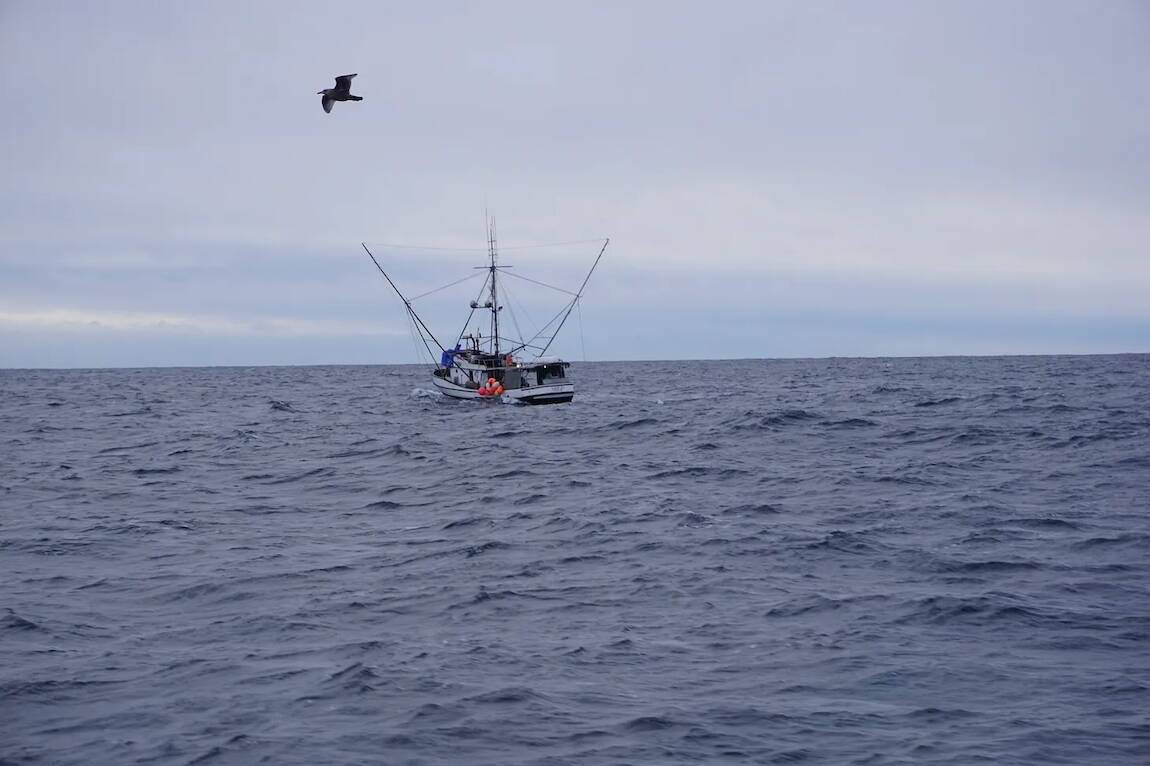The Alaska Senate has proposed a new aid package for the state’s fish processing companies — some of which have been teetering among a crash in prices that’s caused an industry-wide crisis.
The Senate, in its capital budget passed last week, included the $7.5 million grant to a nonprofit organization called SeaShare. Most of the cash would go toward buying out what SeaShare calls an “oversupply” of seafood from last year’s harvest, which it says is costing processing companies money to store in freezers.
The program would add to more than $100 million in salmon and Alaska pollock purchases — more than 1,500 truck loads — announced earlier this year by the U.S. Department of Agriculture.
SeaShare would use the state money to support smaller Alaska processing companies that couldn’t match the scale of the federal purchases, said Hannah Lindoff, the organization’s executive director.
The seafood purchases would then be donated to Alaska food programs and food banks, she said. A smaller share of the grant would also pay for the purchase of new freezers in communities around the state that could store more fish in the future.
“The seafood industry is hurting right now,” Lindoff said. “Just making some cash sales is very vital.”
Sitka Republican Sen. Bert Stedman, one of the co-chairs of the Senate Finance Committee, said the proposal is without precedent in his two decades in the Legislature. But it comes in response to what he described as an “unprecedented market collapse in price across virtually all fisheries.”
The SeaShare program is one of dozens of grants, totaling tens of millions of dollars, recently proposed by the Senate as part of the chamber’s capital budget.
Other proposed line items include $750,000 for the struggling Iditarod Trail Sled Dog Race, $15 million to support construction of an Alaska Native Tribal Health Consortium skilled nursing facility and $700,000 to help replace a failed roof at the Alaska SeaLife Center in Seward.
The Senate’s overall proposal would boost capital budget spending to $450 million in state unrestricted general funds, $133 million higher than Republican Gov. Mike Dunleavy’s latest proposal.
To take effect, the Senate’s proposals still have to be approved by the state House, then survive Dunleavy’s veto pen.
But the inclusion of the $7.5 million SeaShare program in the Senate’s proposal is the latest indication that the seafood industry’s appeals for assistance are getting traction.
Alaska’s congressional delegation last year also successfully persuaded the Biden administration to block U.S. imports of Russian fish, which processing companies said was undercutting American prices. And the state Legislature is also considering up to $10 million more in this year’s budget to support the Alaska Seafood Marketing Institute.
The seafood industry does need help eliminating the big backlog of inventory that’s built up, said Theresa Peterson, fisheries policy director at the Alaska Marine Conservation Council. But, she added, she’d like to see requirements in aid programs that the benefits flow not just to processing companies but also to harvesters and fishing communities.
“I don’t know quite how you’d go about that,” she said, adding: “All three are critical aspects of the seafood industry.”
Peterson was irked when the processing company that long bought fish from her family’s Kodiak salmon setnet site recently announced that it would stop its purchases — leaving fishermen scrambling to find a new buyer. Around the same time, the U.S. Department of Agriculture announced that it would be purchasing more than $65 million in salmon from the same processing company.
Stedman said that it’s hard to directly subsidize individual fishermen given the differences between them — some may face loan payments, while others have their boats and permits paid off.
But the Senate hopes their proposal will trickle down from processors by “getting rid of the inventory,” so that they can buy more fish this year, he said.
Lindoff, from SeaShare, said that her organization hasn’t yet identified the companies that would benefit from the new $7.5 million program. But one of the businesses that she spoke with during the process of drafting the proposal was fisherman-owned.
“They’re sitting on a lot of inventory that’s going to hurt them in the upcoming season,” she said. “In that case, it would be helping fishermen and processors.”
• Nathaniel Herz welcomes tips at natherz@gmail.com or (907) 793-0312. This article was originally published in Northern Journal, a newsletter from Herz. Subscribe at this link. Alaska Beacon is part of States Newsroom, a nonprofit news network supported by grants and a coalition of donors as a 501c(3) public charity. Alaska Beacon maintains editorial independence.

